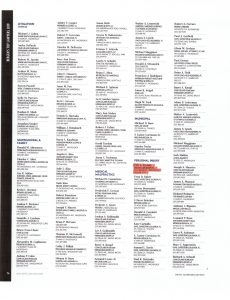Slip and fall cases are some of the most complex personal injury cases to litigate due a variety of compounding factors. For one, the plaintiff must be able to attribute their fall to the place of business’ negligence. This is particularly difficult to prove, considering that in order to assert the business owner’s negligence, there must be proof that they had previous knowledge of faulty conditions and did not make adjustments accordingly.

Slip and fall cases are often difficult to litigate due to burden of proving negligence.
Foremost, it is important to acknowledge that slip and fall cases are typically considered negligence cases and thereby must follow the same legal patterns as negligence cases. As with other tort and negligence cases, assessing the legal liability of the accused party can be accomplished by evaluating three critical elements of a slip and fall case. These elements are duty, breach of duty and causation.
 New Jersey Lawyer Blog
New Jersey Lawyer Blog













 by the American Institute of Personal Injury Attorneys (AIOPIA) as a 10 Best Personal Injury Attorney in New Jersey. Mr. Aretsky is devoted to fighting for the monetary compensation that accident victims deserve for their injuries.
by the American Institute of Personal Injury Attorneys (AIOPIA) as a 10 Best Personal Injury Attorney in New Jersey. Mr. Aretsky is devoted to fighting for the monetary compensation that accident victims deserve for their injuries.